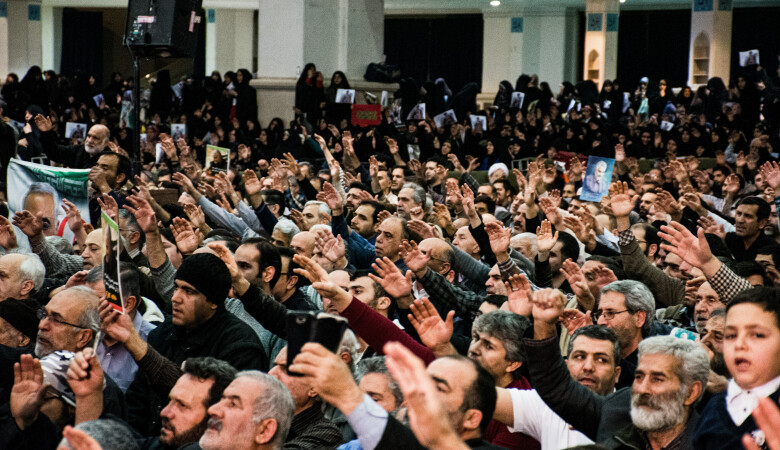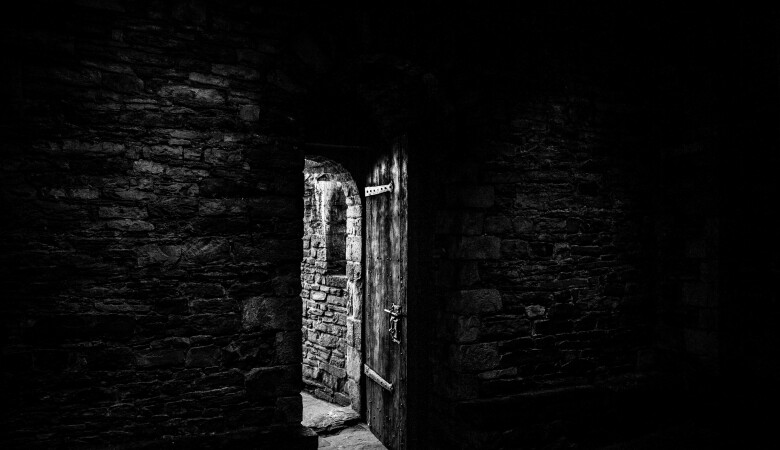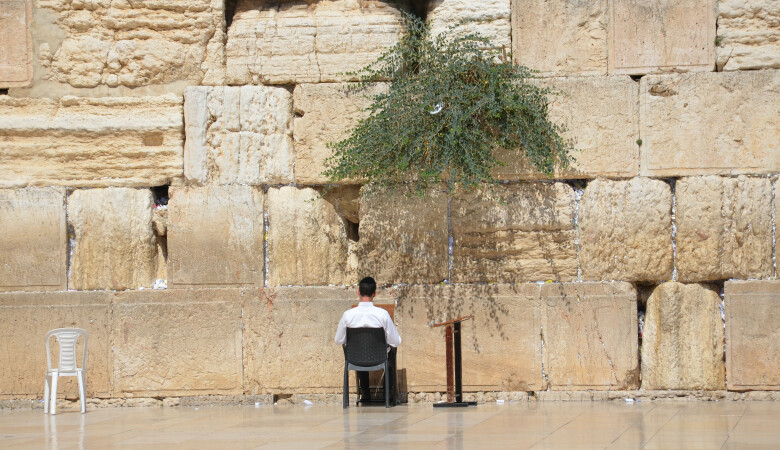Series: Mark
Preparation for the Cross (Mark Sermon 77)
February 11, 2024 | Andy Davis
Mark 14:1-11
Worship, Humiliation of Christ
Jesus’ death on the cross was the result of the meticulous plan and purpose of God, orchestrated in space and time.
- SERMON TRANSCRIPT -
It is the manner of God, before He bestows any signal mercy on the people, first to prepare them for it, so said Jonathan Edwards talking about the Great Awakening as God moved a lot of pieces together to produce that revival. And it is absolutely true. If you look at the scripture, God is a God of meticulous preparations, laying out the raw materials for a providential work before He does that work, of throwing the unformed clay onto the center of the potter's wheel before He shapes it into the vessel He has predetermined to make, or of arranging the wood and the sacrifice on the altar before the fire comes down and ignites it.
God is a God of meticulous preparation, we see it in Genesis 1 with the entire earth, with the worlds that He made. In the beginning, God created the heavens and the earth, and the earth was formless and empty. Interesting statement. Darkness was over the surface of the deep and the Spirit of God was hovering over the waters. Formless, empty, the earth, that was planet earth. Then God got busy shaping a planet just right for human life, working day by day, creating light, separating light from darkness, separating the waters in the atmosphere from the waters down below on the surface of the earth, separating the sea from the dry land, step by step, preparing things, getting things ready for human life, for man created in the image of God. God is a God of meticulous preparations.
But if that's true of physical creation, it's even more true of the complexities of redemptive history. God has meticulously arranged the pieces for our salvation on the chessboard of human history, moving this piece here and that piece there, putting it all together as century unfolded after century until, as Galatians tells us, "In the fullness of time, in the fullness of time God sent his son into the world." In the fullness of time means, effectively, when all of God's preparations for the coming of his son into the world were complete. God had raised up the Jewish nation. He had established the kingly line of David. He had spoken clearly through the prophets. He had borne patiently for centuries with the sins of the Jewish nation. He brought judgments on that nation through two exiles, first to Assyria and then to Babylon. Then reestablished a small remnant of Jews in the Promised Land under Gentile dominion. Then at just the right time, brought Jesus, his only-begotten son into the world.
Then God meticulously prepared Jesus for 30 years for his role as Savior of the world. Jesus grew in wisdom and in stature and in favor with God and man, step by step being gotten ready, for 30 years, getting ready until the time came for Him to be revealed to Israel, and that He could begin his work of amazing miracles and perfect teachings that identified Him as the only-begotten son of God, the Savior, the only Savior from sin. Then at just the right time, God prepared the climax of Jesus' mission to the world, the journey to the cross and then to the empty tomb. The final three chapters of Mark's gospel depict that journey, and we're beginning that today. Mark 14, 15 and 16, Jesus' journey to the cross. And in this account, today, we're going to see overwhelming evidence for this God's meticulous preparation, preparation for the cross.
We see the concept of preparation, of getting things ready in a number of verses in the text you just heard read. Look down at verse 8, speaking of Mary's anointing, "She poured perfume on my body beforehand to prepare for my burial.” One of the translation says, prepare for my burial. Then, a few verses later, verse 12, Jesus' disciples asked him, "Where do you want us to go to make preparations for you to eat the Passover?" We'll deal with that text next week, God willing, and also, in verse 15 and 16, next week, "He will show you a large upper room furnished and ready. Make preparations for us there. So the disciples left and went into the city and found things just as Jesus had told them. So they prepared the Passover." We're going to look at all that next week, but that's where we're heading, it's preparations, it's getting things ready.
And as we'll see today, these are just some of the preparations that God was orchestrating to bring Jesus' son to his bloody substitutionary death on the cross. This morning, we're going to see that God's preparations for that, for the cross, went back before the foundation of the world, extended through all of Jewish history, included Jesus' most hateful enemies, included Jesus' most devoted followers, extended even to the bitter betrayal by one of his closest followers, one of Jesus' apostles, step by step, meticulous preparation, bringing us to the cross.
I. Preparation for the Cross
Now the cross, we believe as Christians, is the centerpiece of the Bible and of all of human history. It is the center of Christian theology. By the cross alone are our sins atoned for. By the cross alone are we reconciled to a holy God. By the cross alone are we delivered from God's righteous sentence of death and hell. By the cross alone are we cleansed of all of our defilement and made pure. By the cross alone are we clothed in perfect righteousness. By the cross alone are we brought into an eternity in heaven. We understand the centrality of the cross, for this reason, Paul said in 1st Corinthians 2:2, "I resolved to know nothing while I was with you, except Jesus Christ and Him crucified." Or again, later in that same epistle, 1st Corinthians 15:3 and 4, "For what I received, I passed on to you as of first importance," top priority, "Christ died for our sins according to the scriptures, and that he was buried, and he was raised on the third day according to the scriptures." That's the centerpiece.
Then, finally, Paul's own personal statement, he makes many of them, but I love this one, Galatians 6:14, "May I never boast, except in the cross of our Lord Jesus Christ, through which the world has been crucified to me and I to the world." Paul's saying, "The cross changed everything for me, the entire way I look at myself and the world and everything, and I'm only going to boast in the cross of Christ." The infinite value of the cross can only be seen by faith.
It's easy to misunderstand Jesus' death on the cross as though it were some kind of tragic mistake, some kind of horrific blunder, a hideous miscalculation on the part of Jesus. He had made enemies of very powerful men. He was sucked into their vortex of pride and power, got sucked in over his head, suffered the ultimate penalty for his naiveté. But this is a grave error, no, it's not that way at all. Jesus' death on the cross was the result of the meticulous plan and purpose of God orchestrated in space and time to the specific actions of people who are doing God's will, whether they knew it or not. Jesus said it plainly, John 10:18, "No one takes my life from me, but I lay it down freely of myself. I have the authority to lay it down and I have the authority to take it back up again, this command I receive from my Father." It says it all.
So we see this when it comes to the cross, the centerpiece of all human history, all biblical theology, all roads lead to Calvary, all roads lead to the bloody cross of Jesus Christ. Here we see God's sovereign, meticulous preparation that brought us there. So in today's outline, we're going to see the preparation by predestination and then, by prophecy, by prediction, by plotting, by the perfume poured out on him, and by betrayal. So let's walk through these.
II. Preparation for the Cross by Predestination
The Bible reveals that the cross was predestined by God before the foundation of the world. Now we're at Passover time. I'm going to talk about the Passover in a moment, but before any of that happened, God knew about the cross God had planned the cross. The cross was founded in the mind of God before time began. Revelation 13:8 says that Jesus was, "the lamb that was slain from the creation of the world.” 1st Peter 1:19, 20 says, "You," us, we Christians, "were redeemed by the precious blood of Christ, a lamb without blemish or defect. He was chosen before the creation of the world, but was revealed in these last times for your sake." So before the creation of the world, the substitutionary atonement of Christ had been predestined in the mind of God. Jesus was the lamb of God slain in the mind of God from the creation of the world. Since this was the plan of God, every step toward the cross, even taken by Jesus' sworn enemies, was part of that plan.
As Peter preached in the streets of Jerusalem 40 days after Jesus' death, Acts 2:23, "Jesus was handed over to you by God's set purpose and foreknowledge, and you, with the help of wicked men, put him to death by nailing him to the cross." God's set purpose and foreknowledge involving the people of Jerusalem and wicked men led to Jesus being nailed to the cross. Then later, two chapters later, in Acts 4, as persecution starts to ramp up, the church prayed to God. In Acts 4:27, 28, "Herod and Pontius Pilate met together with the Gentiles and the people of Israel in this city to conspire against your holy servant, Jesus. They did what your power and will had determined beforehand should happen." That says it plainly, doesn't it? Even the plots of wicked men were part of God's eternal plan. The preparation for the cross was ultimately in the mind of God before time began.
III. Preparation for the Cross by Prophecy
Next, we see the preparation of the cross by prophecy. God had already formed this plan before He said, "Let there be light," but then He paid out information gradually over redemptive history through prophecies that said what He was going to do step by step. God communicated the details of the cross through many prophecies. God sent many prophets and spoke many words of prophecy predicting the cross of Christ. Every animal sacrifice itself was an acting out prophecy of the cross.
Now, clearest in this text was the Passover itself, it was a lived-out, acted-out prophecy from centuries before pointing toward the cross of Christ. This account begins with the approach of the Passover. Verse 1, "Now, the Passover and the Feast of Unleavened Bread were only two days away”. The preparation of the Passover is a big part of this account and next week's account, God willing. The disciples wanted to know where they should go and prepare the Passover feast. Everything's getting ready. All the people have come from miles away to prepare for the Passover. The Passover itself was God's sovereign preparation for the cross, getting everybody ready to understand it, fifteen centuries before Christ. You remember the story of the Exodus and how God brought the enslaved nation of Israel out of Egypt with a mighty hand and outstretched arm, and with ten plagues, terrible plagues.
The tenth plague was the worst of them all, the plague on the firstborn. The angel of death would visit every home in Egypt that terrible night and kill the firstborn in that home. From the highest to the lowest, from the throne of Pharaoh to the lowest slave, no one would be exempt. And the Jews were no better, Ezekiel 20, "They are as idolatrous as the Egyptians were,” and they deserve their firstborn to be slaughtered as much as the Egyptians did. So God made a provision to make a distinction between Israel and Egypt by means of this sacrifice. The clear implication, when you have to paint the blood on your doorpost and your lintel or your firstborn would die, your firstborn deserves to die as much as anybody else's. It's only by the shed blood of the substitute that that death doesn't come to you. God commanded each family to select a lamb without blemish or defect, slaughter it, paint the blood of that lamb on the doorposts and lintels of the house. The promise was that the angel of the Lord would see the blood of the lamb and pass over that home not killing the firstborn. Thus, the Passover is the picture of what God had already predestined before the foundation of the world to do, the cross of Christ. He's the lamb that was slain before the foundation of the world. Now it's acted out that very night, the night of the tenth plague, the shedding the blood, a substitute delivering sinners from death. Then, it was reenacted year by year for fifteen centuries as part of their heritage, part of their religious year. God established this as a preparation, getting their minds ready for the fulfillment.
In Jesus' time, it's estimated that over two million Jewish pilgrims would come to the city of Jerusalem for the Feast of Unleavened Bread and Passover. That feast, that particular Passover that year, Jesus would fulfill that image for all time. Christ is the end of the law so that there might be righteousness for all who believe. And so, it would be fulfilled. It wasn't an accident that Jesus died right at the Passover time, right when the Lamb would be slain, it was exactly to fulfill that imagery.
So the application of the blood of Jesus, the substitute, to our souls is what enables us to survive Judgment Day. As Romans 3:25 says, "God presented him as a propitiation through faith in his blood." Propitiation means one who turns aside the wrath of God by the payment of a sacrifice. That's what propitiation means. Jesus is that. So, Romans 5:9 says, "Since we have now been justified by his blood, how much more shall we be saved from God's wrath through him?"
"The application of the blood of Jesus, the substitute, to our souls is what enables us to survive Judgment Day. As Romans 3:25 says, 'God presented him as a propitiation through faith in his blood.' Propitiation means one who turns aside the wrath of God by the payment of a sacrifice."
Of course I haven't given the whole raft of prophecies from the Old Testament pointing toward Christ, which there are many, but I'm focusing on the prophecy, the acted out prophecy that was the Passover.
IV. Preparation for the Cross by Prediction
Next, we see the preparation for the cross by prediction. In this, I mean, specifically, Jesus' stated predictions of what was going to happen leading up to the cross, effectively saying, "I am the fulfillment of all those prophecies. It's happening now." He got them ready by predicting what would happen to him.
We're told in Matthew 16:21, "From that time on," that was in Caesarea Philippi when Peter made his great confession, "You are the Christ, the Son of the living God," "Blessed are you Simon Jonah. This was not revealed to you by man, but my Father in heaven." All that, Caesarea Philippi. "From that time on," Matthew 16:21 tells us, "Jesus began to explain to his disciples that he must go to Jerusalem and suffer many things at the hands of the elders, chief priests, and teachers of the law, that he must be killed. And on the third day, raise to life." He did this again and again and again, predicted, predicted, predicted. Especially at this time again in Matthew 26:2, it says, "The Passover is two days away and the son of man will be handed over to be crucified." That's a clear statement Jesus made in Matthew's account. Mark doesn't pick up on it, but he did say it, "As you know, this is all happening. I'm about to die to fulfill the Passover." His prediction linked his own life to the Passover imagery. Now He did this to prepare his disciples ahead of time so that they wouldn't lose their faith. John 13:19, "I'm telling you now before it happens, so that when it does happen, you'll believe that I am, that I am God, and that I am the Messiah." The predictions got them ready, but they didn't really listen. Did you notice? They had no idea. One person listened though, the woman in our account. We will get to her in a moment. She listened. She paid attention, but the others, they were fighting it. They couldn't conceive of it.
V. Preparation for the Cross by Plotting
Next, we see preparation of the cross by plotting. Jesus' enemies were directly plotting his death. Look at verse 1 and 2, "Now the Passover and the Feast of Unleavened Bread were only two days away and the chief priests and the teachers of the law were looking for some sly way to arrest Jesus and kill him, but not during the feast, they said, or the people may riot." “Not during the feast," they said. Isn't it beautiful that He was killed during the feast? We'll get to all that. So much for the plans of the enemies, but they're plotting concerning this.
Why did they hate Him so much? It's instructive for us to probe that. Why did they hate the only perfect man that's ever lived, filled with love, perfect in love toward God and toward others? Why did they hate Him? First, Jesus himself said the reason they hate Him is He testifies that what they do is evil and their pride won't let them listen to Him. He says they are evildoers. They hated Him because He exposed their righteousness as a sham. He called them, "whitewashed tombs, which look beautiful on the outside, but inside, full of dead men's bones and everything unclean."
They hated Him because He cleansed the temple twice, at the beginning of His public ministry and then at the end, thus He was touching the nerve of what they cared about the most, money. So they hated Him for that. They were jealous. They hated Him because they were jealous of his popularity with the people who loved Him, and these enemies were jealous. And they hated Him because they were afraid of what the Romans would do in reference to Him, that the Romans would come away, come and take away their place in their nation because they were threatened by Him, so they hated Him.
Throughout His ministry they opposed Him. And at a certain point, from a certain point on, they're looking to kill Him. They're openly wanting to kill Him. At some points, even picking up stones right there and then to kill Him like in John 8. They want to kill Him, many times already, but they're not able to do so, we're told, especially in John's Gospel because His time had not yet come. Timing is everything, fullness of time. So they were not able to do it.
Now, however, the time has come, Jesus prays that in John 17, "Father, the time has come, glorify your son." The time's there, but God has His timetable, the enemies have theirs as He just hinted at a moment ago. God wanted Jesus to die at exactly the right time to fulfill the imagery of the Passover. God loves symbolism, and He wanted to fulfill that and make it easy for them to see the connection.
But we see the irony, for Jesus' enemies, this is exactly the wrong time to kill Jesus. This is absolutely not what they want to do, not because they didn't want Jesus to fulfill prophecy, they weren't thinking about that at all, it's because of the threat to their nation and to their own position of this huge crowd and Jesus' stunning popularity with the crowd. Remember the triumphal entry? It terrified them. They were clearly afraid of Jesus' popularity with the crowds. So if they arrest Jesus in public, the crowds are going to riot, they're going to kill those that are there to arrest Jesus and defend Jesus.
But they're also afraid, as I mentioned, of what the Romans would do if the crowds took Jesus and made Him king even by force, as John 6 said they wanted to do. In that case, Jesus' enemies would be left out, right? Either the Romans would come in and that moment would fail through Roman power and Jesus would be slaughtered and His followers slaughtered, and then the Romans would just come and take over and they would lose their place of power and position in the nation, or Jesus would succeed and be the king of the world, whereupon they're out because they're His enemies. Either way, this is not the time they think to arrest.
They want to arrest Jesus, "in some sly way," that's one translation, the Greek says, "by subterfuge, by treachery or trickery." Ideally, they would like to arrest Jesus maybe at night or sometime when there's not many people around, and they needed information on His coming and going. They didn't have “Find My Friends” back then yet, so they needed to know where He's going to be and when, they need an insider. But how could that be? Jesus' twelve followers are fanatically committed to Him, so they thought. They had a problem, but in any case, they know, not during the feast.
But yet, isn't it beautiful? God's plan cannot be stopped. It was during the feast because that's what God wanted. "Many are the plans of a man's heart, but it's the Lord's purpose that prevails." And so, the passages tell us, Acts 2, "Jesus was handed over to you by God's set purpose and foreknowledge, and you, with the help of wicked men, put him to death by nailing him to the cross." Their actions are part of the plan. Or again, "Herod and Pontius Pilate met together with the Gentiles and the people of Israel in this city to conspire against your holy servant Jesus whom you anointed. They did what your power and will had determined beforehand should happen." God willed that Jesus should die at the Passover and that these wicked men would be essential to making that happen by their plots, and so would Judas' betrayal, so would Judas' betrayal. We'll get to that.
VI. Preparation for the Cross by Poured Perfume
Next, we see preparation for the cross by the poured perfume. In the middle of all this swirling evil, there is this act of pure beauty, pure beauty, sacrificial worship poured directly on the head and feet of Jesus. And I would argue to some degree, I think even simply straight out, this is the point of everything, it really is, the point of the cross.
Why did God make the universe to begin with? For His own glory, for a radiant display of His glory. But God already knew how glorious He was, He didn't need to make anything to prove it to himself. So then, God made sentient beings, angels and humans to be able to see and appreciate His glory and praise Him for it. He made the universe because He's generous and He wanted to share Himself.
I's all about worship, but sin entered the world blocking that worship that God created us to do. Jesus came to remove that sin problem, that sin blockage by His death and His resurrection, by the outpoured Spirit, by His salvation plan to heal us of sin so that we could get back to the original purpose, which is worship, worship. Jesus came into the world for that purpose to affect worship as He said to the Samaritan woman in John 4, "A time is coming and has now come when the true worshipers will worship the Father in spirit and truth, for they are the kind of worshipers the Father seeks. God is spirit and those who worship and must worship in spirit and truth."
"Jesus came to remove that sin problem, that sin blockage by His death and His resurrection, by the outpoured Spirit, by His salvation plan to heal us of sin so that we could get back to the original purpose, which is worship."
So in the midst of all of this wickedness, this confusion, swirling plots by these powerful, wicked men, in the midst of the apostles at their worst, we're told in another place, some of them bickering about which of them was the greatest, some of them boasting that they love Jesus more than any of the others, and one of them showing his true nature as the devil, betraying Jesus, that's going to happen that night, in the middle of all of that, we get one beautiful act of worship by this woman. So beautiful.
Let's look at the act, the act described. Look at verse 3, "While he was in Bethany reclining at the table at the home of a man known as Simon the Leper, a woman came with an alabaster jar of very expensive perfume made of pure nard. She broke the jar and poured the perfume on his head." Now, all four Gospels have an account of a woman anointing Jesus. Luke speaks of a sinful, but forgiven woman who anoints Jesus' feet with her tears and dries them with her hair. But Matthew, Mark and John all speak of this one incident that we're looking at now, and I think it's clearly a different time, a different woman too, I believe.
John identifies this woman as Mary, the sister of Lazarus, the man that Jesus raised from the dead in John 11 and with whom Jesus had a close love relationship. Martha, Mary and Lazarus were close friends with Jesus. Martha and Mary are also well known. They were dear friends of Jesus. We're told the anointing takes place in Bethany very close to Jerusalem. We're told it happened in the home of a man known as Simon, the leper. We know nothing else about this man. He's not mentioned in any other account, so there's nothing to say about him, just where his home was.
John tells us, this anointing took place eight days before the Passover. John positions it chronologically. So Mark has rearranged it and kind of inserted it here, but with John, we get the full picture of the chronology. It was a sacrificial gift. Mary took an alabaster jar of pure spikenard. One of the translations gives spikenard. John says it was pistik nard coming from the head or spike of a fragrant East Indian plant belong to the genus Valeriana, which yields juice of a delicious odor. The plant grows in the distant Himalayan mountains and was extremely costly, you can well imagine. It's traveled a long distance to get there. John tells us, and Mark tells us here that it was valued at 300 denari. A denarius was a day's wage for a laborer, so that's a year's worth of money. It's a lot of money. Furthermore, it was in a costly alabaster jar. You picture like a flask with a slender neck sealed at the top. For her to get at it quickly, she chose to break the neck of the alabaster jar and pour the whole bottle over Jesus' head, and also, John tells us, over his feet, Mark just says head, but head and feet.
Then, we get the disciples' reaction, verse 4 and 5, "Some of those present were saying indignantly to one another, ‘Why this waste of perfume? It could have been sold for more than a year's wages and the money given to the poor.’ And they rebuked her harshly." John tells us that Judas was the ringleader of all this, he led out in this. John, under the inspiration of the Holy Spirit, probes Judas' heart, John 12:6, "Judas did not say this because he cared about the poor, but because he was a thief. As keeper of the money bag, he used to help himself to what was put into." It's absolutely disgusting. Because we are told in Luke 8 that some women, some wealthy women were supporting Jesus out of their means and Judas is plundering that on the side. Jesus had given the money bag to him to take care of. It's not like he didn't know who Judas was. However, it seems all of the disciples shared, to some degree, Judas' abhorrence of this action. They're all on board with what he's saying. They don't get it, it doesn't make sense. I mean, Jesus has just got done in Matthew's Gospel with the whole sheep and the goats thing, remember? The sheep and the goats, "I was hungry, you fed me. I was thirsty, you gave me something to drink." All of that. That's a whole bunch of benevolent ministry, a whole bunch of mercy ministry, and if you do it, you're in heaven. If you don't do it, you're in hell. And all this. Then, just a short time later, there's a woman pouring a year's worth of wages all over Him, and He's fine with it. It's confusing.
Years ago, remember those, "What would Jesus do?" bracelets? I don't always know what Jesus would do. Does He seem unpredictable to you? I think I would've understood their objections, but He defended her. Look at it in verse 6 through 9, “'Leave her alone,’" said Jesus, “'Why are you bothering her? She has done a beautiful thing for me. The poor you'll always have with you and you can help them anytime you want, but you will not always have me. She did what she could. She poured perfume on my body beforehand to prepare for my burial. I tell you the truth, wherever this gospel is preached throughout the world, what she has done will also be told in memory of her.’" I can't imagine a stronger defense.
He describes her lavish gift as a beautiful thing. The Greek word implies that it's a virtuous act. He addresses their concern for the poor by citing Deuteronomy 15:11, "There will always be poor in the land." He then challenges them about the poor, you can help them anytime you want. It's a bottomless pit. It never ends. You always have poor people with you. And anytime any of us wants to help the poor, we can do it. And I do believe, as in the sheep and the goats, God's going to talk to us about it on Judgment day, how much that was. But Jesus said, "You'll not always have me," not like this. This is an amazing statement. He's returning to the topic of His imminent death. He's soon to be physically taken away from them. He specifically says she anointed His body to prepare for His death. Verse 8, "She did what she could. She poured perfume on my body beforehand to prepare for my burial." Then Jesus makes this amazing, prophetic statement about how she would be remembered forever, "I tell you the truth, wherever this gospel is preached throughout the world, what she has done will also be told in memory of her."
Jesus knew at that moment that these stories would be told to the end of time. How did He know that? Because He's God. And He knew that there would be a careful gospel record under the direct inspiration of the Holy Spirit and that this account would be included in that and that this gospel will be preached through the whole world. He already said that in Matthew 24:14 it's going to happen, and this story is going to ride along with that gospel proclamation, it's going to come with it and people are going to hear about her to the end of time, and I say beyond, beyond.
I believe his statement's being fulfilled right now as I preach. Here we are in Durham, North Carolina, which is a long way from Jerusalem, and we're centuries later, and we're talking about her. Jesus is a prophet. But I think it goes beyond, it goes beyond this moment, it goes on into heaven. It goes into heaven. Why is that? Because we already learned from Mark 13:31, "Until heaven and earth pass away, my words will never pass away." Heaven and earth will pass away, my words will never pass away. What? Including this one? Yes. For all eternity, we'll be talking about this woman's anointing. That's pretty awesome.
But then I thought about it as I was meditating about heaven, writing my book on heaven, I thought, we're not just going to talk about her active, sacrificial giving, we're going to talk about all of them, all of them. Which ones? Well, the ones you all did too, and the ones that I did. Why just this woman? If we're going to remember her good works, we're going to remember everybody's, and so, I believe we will. We're going to remember, "And my Father will honor," Jesus said, "the one who serves me." That's a beautiful thing.
I love what it says in verse 8, "She did what she could." Isn't that powerful? What else can we ever do? Reminds me of Moses and the burning bush and that interaction. At some point, God says to Moses, "What do you have in your hand, Moses?" "A staff." "Throw it on the ground." Remember? It's like, "What do you have with you? I can use that. I can use that staff. Throw it on the ground." What about you? Are you doing what you could? That's the question. We'll get back to this. I want to circle back, but this is a beautiful moment.
VII. Preparation for the Cross by Betrayal
We go from that to... We go from the height of beauty to the depth of darkness. It's disgusting what happens next, but it's the truth, isn't it? Look at verses 10 and 11, preparation for the cross by betrayal. "Then Judas Iscariot, one of the twelve, went to the chief priests to betray Jesus to them. They were delighted to hear this and promised to give him money. So he watched for an opportunity to hand him over." So now we get to betrayal.
Keep in mind, Jesus is in no way surprised or caught unaware by Judas. He knew this was coming. After the whole “eat my flesh, drink my blood "teaching in John 6, He says to the twelve, "You don't want to go away too, do you?" Peter says, "To whom should we go? You have the words of eternal life." Then Jesus says, "Have I not chosen you the twelve? And one of you is a devil." Not one of you will later will become a devil, you're a devil right now. He already knew. But still, just because Jesus knew didn't mean it wasn't painful for Him. Jesus knew about the cross, it was painful.
This is betrayal. Betrayal shows a violation of trust, a love relationship. You can't betray someone you don't know or have no connection with, it always has to do with a close friend, has to do with a spouse, it has to do with a son or daughter or father or mother, a close relation. It has to do with a national affinity, you can betray your country. But you can't betray someone you have no connection with, a total stranger and there's no connection. So this is hurtful, painful betrayal.
Why did Judas betray Him? He was never a believer. It's not like he lost his faith, he never had any. Jesus gave him charge of the money bag because that's all he cared about, it's the only way He could keep him to stick around. He was in it for the money. He was embezzling. In all of the gospel accounts, it's immediately after this anointing by Mary that he goes out to say, "What can I get for Jesus?" It's directly, you get a sense of cause and effect, it's like, "All right, if we're going to be doing that, we're going to pour a year's worth of wages on the ground, the game's up. It's time to trade Jesus in for what I can get from them.” Look at the valuation, you can't see it, but listen to the valuation question in Matthew's account, Matthew 26:14, 15, "Then one of the twelve, the one called Judas Iscariot, went to the chief priest and asked," listen to this, "What are you willing to give me if I hand him over to you?" "What's it worth to you?" It makes you want to vomit. "What's he worth to you?" "Thirty pieces of silver." Little knowing, both sides, that they were directly fulfilling a prophecy in Zechariah, but 30 pieces of silver. They measured out thirty silver coins, cold-blooded idolatry on the part of Judas. He was in it for the money. He loved money. He was covetous. Then, selling his soul for 30 pieces of silver. Yet, his initiative is instrumental, it's a catalyst for the timetable of Jesus' death. It was instrumental because now, they have what they were looking for, an insider who can give knowledge, specific knowledge of Jesus' comings and goings, and that's going to lead to Gethsemane where Jesus would be arrested.
VIII. The Point of the Cross: Worship
The point of all of this, as I've said, is worship, so let's bring this to application and bring it to a close. God created you and me to worship Him. The only reason we don't is sin, that's why we don't worship Him as we should. Mary's act of sacrificial giving was both a unique moment in time that could never be repeated, but also a timeless pattern or paradigm of worship. It's both. It was unique because Jesus said, "You will not always have me." We cannot anoint Jesus' head and feet physically, He's up in heaven, we do not have that ability to do it. Furthermore, we can't prepare for His burial because death no longer has mastery over Him. He will not die again. He doesn't need to be prepared for burial. That moment has passed. So it's not possible for us to love Jesus specifically the way Mary did.
And yet, as unique as that moment was, it clearly also is, to some degree, a paradigm for lavish worship. It's based on faith. What was she doing? Preparing Him for what? Burial. So I told you, there was one disciple there who took Jesus' word seriously, He's going to die. She maybe didn't fully understand, of course, she didn't fully understand, but she believed that what Jesus said was true and she took Him at face value. Mary was this kind of a woman, she was a contemplative listener, ponderer, she sat at Jesus' feet and listened to His teaching. She took it seriously, that's who she was. Luke 10:42, Jesus said, "Mary has chosen what is better and it will not be taken from her." That's who she was. So as faith, it was based on Jesus' word.
Secondly, it was loving. She cherished Jesus and sought to honor Him. She poured out this costly perfume out of a heart of love for Him. The beauty of the action was the love that was in her heart. It was lavishly sacrificial, it was costly, costly. Love can always be measured by cost, by sacrifice. No sacrifice, no love. Jesus said, "Greater love has no one than this that he laid down his life for his friends." The greatest gift God has ever given us, God the Father, is the gift of His son. That's the measure of God's love for the earth. God did not spare His own son, but gave Him up for us. That word “spare”, she didn't spare, she didn't hold back, she didn't pour a few drops on Jesus, she poured it out, poured it out.
It recognizes, therefore, the supremacy of Christ above all. Yes, it is right to serve and love the poor, to share the gospel, to do many horizontal acts of kindness to other people, but we are created, first and foremost, for God and for Jesus. If we love anything more than we love God, including poor people, we're not worthy of Him. Jesus demands and deserves our best. That's a picture of worship.
The challenge for us in terms of worship is are you doing what you can? She did what she could, what about you? What's in your hand? What's in your life? Are you living a life of self-denying sacrificial love for Jesus? That's the challenge. That's the challenge.
As I finish my comments, now I want to go back to the beginning. The whole thing's about preparation. The best thing I can hope about all of you who are listening to me today is you are what Romans 9:23 calls, "vessels of mercy prepared in advance for glory." How beautiful is that? God is the potter, we are the clay. Is He preparing you, shaping you for glory? Have you trusted in Jesus for the forgiveness of your sins? That's the first direct preparation on a soul to get you ready for heaven. Have you trusted in Jesus for the forgiveness of your sins? And if so, then do you see the shaping hands of God in your life preparing you for an eternity in glory? That's a beautiful picture, isn't it?
Close with me in prayer.
Father, we thank you for the time that we've had to study this beautiful text. Father, I pray that you would work in us such a heart of sacrificial love for you, Lord Jesus, that we would hold back nothing, that we would spare nothing, that we would give and give. We are so stingy, Lord. I feel ashamed as I read this account. I feel how stingy I am toward you, how much I hold back from genuinely serving you and loving you. I pray, oh Lord, that there would be no one here listening to this sermon now that's outside of Christ, but that everyone would repent and believe and trust, simply trust in His blood shed on the cross for the forgiveness of sins, but then, that you would do that beautiful preparatory work in us so that we would be able to give and give and give worship for all eternity. In Jesus' name, Amen.































